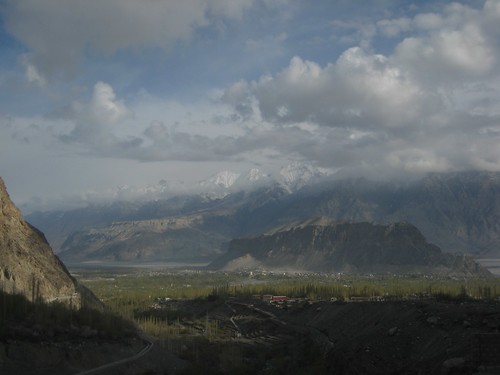After Easter, I spent a week in Pakistan and Kashmir, visiting Islamabad, Thara, Sava, Dadyal, Mirpur and Skardu, which is in the northern Gilgit-Baltistan province. During a live news conference with Kashmir’s Prime Minister, I was asked why I take the time to support the cause of democratic self-determination for Kashmir. There are three reasons.
First, the essence of representative democracy is representation. I joined the Party in the Autumn of 2007 when, thanks to the transformation of the EU Constitution into the Lisbon Treaty, I thought our political system had reached a new low. Perhaps it had, but the expenses scandal took it lower. I was and remain determined to do things differently.
I promised my well over 8,500 Kashmiri constituents that I would represent them on the issue of Kashmir. In securing a debate in Parliament and following up with a visit to consider our next steps, that is what I have done.
Second, we have common cause. One of newest ideas in human history is that political power has no legitimacy apart from that bestowed at the ballot box. Democracy is certainly imperfect, and it may be the worst system apart from all the rest, but it is has the prime purpose of enabling the public to dismiss their rulers without recourse to violence, which is bound to interrupt the smooth development of civilisation and prosperity.
In the long and bloody history of Kashmir, we see why the plebiscite required under UN resolutions is so essential, whatever difficulties there may be. The people of Kashmir should certainly have a referendum to determine their future and so should the people of the UK.
Finally, I support democratic self-determination because it is right. As Pakistan’s Foreign Minister confirmed, the conflict over Kashmir is a substantial impediment to prosperity across the entire region of South Asia. Of course there is much else that must be changed, but British people descended from anywhere on the sub-continent deserve British representation on what is substantially a legacy of the British Empire. Of course India and Pakistan are independent nations, but there are thousands of British people who demand, and are entitled to, representation on this issue, an issue which harms their extended families and naturally weighs heavily on their minds.
I was delighted to learn that India and Pakistan are working towards making progress. I hope the British Government will provide, with due humility, all the support it can.
You can watch highlights of the trip below.
We went on to Gilgit-Baltistan, which was thoroughly beautiful:

Your tour’s video is interesting!